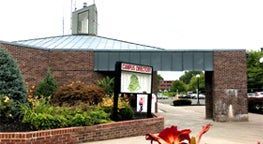Be Prepared
Developing Your Emergency Plan
- Be aware of the types of emergencies/hazards that can potentially affect our area.
- Plan a meeting with your roommates or co-workers to discuss disaster preparedness.
- Discuss specifics as to what to do in the event of an evacuation. For example, you should establish driving routes and meeting places, and make a list of contacts.
- Determine how you will exit your apartment, dorm, or house in case of an evacuation. Know at least two ways to get out.
- Plan for several different meeting places. One place should be directly outside of your apartment, dorm, or house. The other should be a site away from your neighborhood in the event you cannot return home. Give your family members and roommates a copy of this information.
- Choose an out-of-state contact person. It is often easier to call long distance than locally during an emergency situation. As soon as possible, let the designated person know that you are safe. Share this contact person’s information with your family and roommates.
- Discuss how to “shelter in place.” The type of incident will determine how you should shelter.
- Discuss and practice how to turn off electricity, water, heating, cooling systems, and gas.
Emergency Supply Kit
- Medication.
- A copy of your passport, driver's licence, and Rensselaer ID card.
- Water - As much as you would drink on a summer's day.
- Non-perishable food such as power bars, granola, nuts, etc.
- Money. Having a few dollars in small denominations is very handy for buying things when no ATM or credit card machines are available, or when the electricity is out.
- Cellphone cable and charger.
- Portable Backup phone charger. A 12,000 mAh charger should charge your phone approximately two times.
- Warm clothing – such as a sweater, long pants, heavy socks, hat and gloves -- in case of cold weather.
- Windproof and waterproof jacket.
- LED flashlight with batteries stored separately so you don't have to use your phone as a flashlight.
- Entertainment - Books and playing cards are great because they're easy to carry and don't use electricity.
- Spare laptop charging cable.
- Copy of important phone numbers and email addresses.
- Telephone number of the closest consulate or embassy where you can get a new passport.
